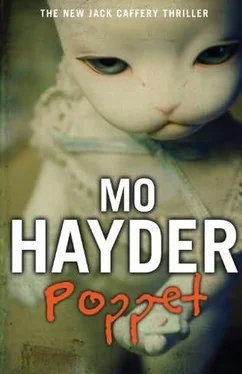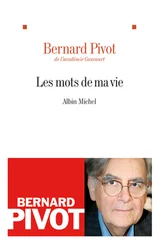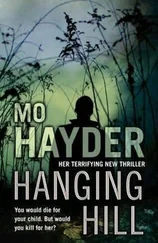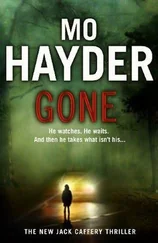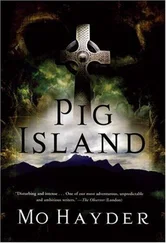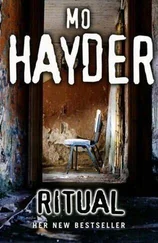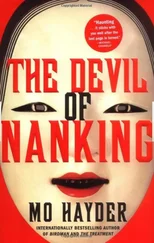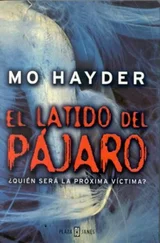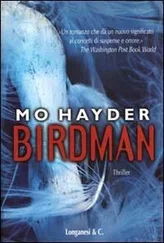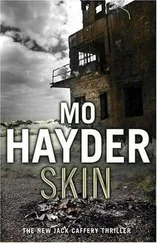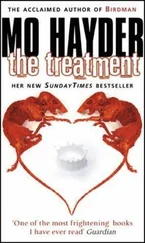‘You’ll just make her ill.’
Patience purses her lips and busies herself around the kitchen, getting a mug of coffee and cream, tomato ketchup for the kedgeree. AJ ought to be the size of a house with all the food she dishes up.
‘Did your washing – it’s ironed and hanging in your wardrobe. Just in case you wanted to say thank you for that.’
‘Thank you, Patience.’
‘And for your information …’ She ladles dusky yellow kedgeree on to his plate and sets it in front of him. ‘The patron saint of good dress sense has paid us a visit. Your Hawaiian shirt got blown away.’
‘What?’
‘Off the line. Disappeared.’
‘Patience,’ he says warningly. ‘That was my favourite shirt.’
‘I know. And I’m telling the truth. I pegged it like the others. Must have been the wind. Clearly it’s got better taste than some of us.’
She turns away and clucks around, tending to her jam. Lifting the lid of each saucepan and peering inside, releasing huge plumes of steam. AJ sighs and picks up his knife and fork. By the time she has finished her jam duties the windows are covered in condensation and AJ has cleaned his plate. She snatches it up, carries it to the Aga, heaps it with more kedgeree.
‘Steady,’ he says. ‘There won’t be enough for Melanie.’
‘We’ll see,’ she says sourly. ‘We’ll see.’
AJ gives her a narrow, thoughtful look, wondering what’s going on. He thinks he knows. He picks up the ketchup and squirts it on the kedgeree. ‘So?’ he says, casually clicking the bottle closed. ‘What do you think?’
‘What do I think about what? What do I think about your Hawaiian shirt? You know the answer to that. What do I think about your job? You know the answer to that. What do I think about the way you spoil your dog? You know the answer to that.’
‘And you know what I’m talking about.’
Patience makes a disapproving noise at the back of her throat. She takes the kedgeree pot to the Aga and puts it on the warming plate, clunking down the heavy lid.
‘Well? Come on – spit it out.’
‘I like the way she eats,’ she says guardedly. ‘She eats like a proper human being.’
‘Apart from that, what do you think?’
She doesn’t answer. She picks up an oven glove and bends to check the jars sterilizing in there.
‘Patience? I asked you a question.’
She slams the oven door. ‘I heard your question. I did hear.’
‘And your answer?’
‘I’m worried.’ She wipes her hands quickly on the tea towel and drops it on the table. ‘If you want God’s honest truth, I think this time it’s different.’
‘Different?’
‘Yes – this is the first time I’ve seen my nephew acting like a grown-up and not a twelve-year-old boy who’s just worked out what his weenie is for.’
‘Is there a problem with that?’ AJ puts his knife and fork down. ‘Being serious?’
‘Hey,’ Patience says gently. She sits opposite him, watching him with her kind brown eyes. ‘You don’t know who you are – you really don’t. You don’t know how precious you are to me. I never had my own children – and isn’t that a blessing, because they’d be wild as boars if I had. But long before Dolly died, when you were still a little snotty kid about the size of a jelly bean and so ugly it hurt to look at you, me and Dolly both swore that whatever one of us went first, it would be the other who brought you up. She might have popped you out into the world, but as far as she and me were ever concerned you had two mothers. Maybe not perfect mothers, neither of us, but together I think we did a good job.’
‘And?’
Patience gives one of her rare smiles. She’s got teeth cleaner than poured milk, and when the light comes into her eyes she’s the prettiest woman alive. ‘I’m a mother bear, sweetheart. The first time my little boy’s put his heart on the line, and I want to be sure you’re going to be treated right and that the lady in question hasn’t got something else in her mind.’
CAFFERY HAS COME straight from Penny Pilson’s to the search site and all the way the holdall containing Handel’s dolls has been making a low shuffling sound in the boot on the sharp corners. Now he knows their relevance, what they meant to Handel, he’s especially conscious of them. It’s tempting to stop the car and go back there to check the boot – if only to convince himself the little bastards haven’t climbed out of the bag. But then Flea gets into the car and he forgets all about Isaac Handel and starts thinking about Misty again.
They stop at a place just to the north-east of Bath. She shows him where to park: in a gravelled courtyard. Ahead stands a cottage. It is long and low – two-storeyed, spindling along for nearly twenty metres. Abutting it, coming out at right angles to form the second side of the yard, is a large house with a sheer brick wall topped by chimney stacks that block out the night sky. There are lights on in the only windows, which are high up, as if it’s a prison.
‘That’s the neighbours.’ Flea waves a hand at the wall. ‘And this’ – she indicates the rambling cottage, lit only by an old-fashioned coaching lamp covered in dead creeper – ‘is me.’
She swings out of the car, hefts her kit on her back and heads to the door. He gets out, looking around. In the moonlight he can make out the garden, which seems to be huge and unmanageable. Weed-choked and full of attempts at design that have gone wrong and been overgrown. Rose beds spill on to lawns that have grown into meadows and been defeated by the rains and the cold. What must once have been elegant terraces cascade down like jungle ledges, disappearing into the night. A wind comes up, blows straight through him. Autumn is here with a vengeance. He pulls his jacket tight and turns to follow Flea.
She dumps her kit outside the front door and uses a cast-iron boot scraper to lever off her boots. ‘Come in,’ she says. ‘Come in.’
He stands in the hallway unlacing his walking boots, glancing at the surroundings. The house is long and ramshackle and as untidy as his place, with boxes lining the corridor. But the thing that sets this apart from his house is a sense of home his remote and unloved cottage will never have. Everything smells faintly of open fires. He looks to his left, where the cottage extends off, the floor uneven, dried flowers in the mullioned windows. He looks to his right, where Flea has disappeared. At all the coats hanging on the painted peg board.
This was where it happened. This was where she struck the deal to cover up what her brother had done. He pushes the boots to one side and follows her through the house. The boxes are in every corner, taped and stacked. She is making coffee in the kitchen. She’s taken off her jacket and sweatshirt and is dressed in black combats and polo shirt with the Underwater Search Unit’s badge sewn on the front. Her blonde hair is bundled up carelessly. Her arms are a mass of scratches and gouges from the day’s search. As she fills the kettle she has to negotiate a taped box on the floor.
‘What’s happening here? You moving?’
‘Not in the way you think.’
‘Cryptic.’
‘Yep – cryptic.’
She bangs about the place, making a lot of noise getting things out of cupboards. Slams down cups and spoons and jars of sugar.
‘Your house?’ Caffery says. ‘You grew up here?’
‘Milk? Sugar?’
‘Yes to both, thanks. It must have been a good place to grow up.’
She pauses, with the kettle poised above the cup, and he realizes his mistake. Her parents. He’s an idiot. ‘I’m sorry,’ he mutters. ‘Sorry.’
She pours the water, adds some milk, mixes it quickly and hands him the cup.
Читать дальше
